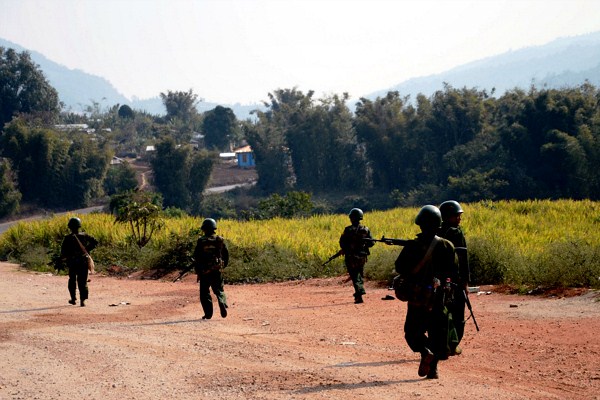Since taking office in 2011 after decades of iron-fisted military rule, Myanmar’s quasi-civilian government has faced the challenge of opening up a country long closed to the outside world and delivering on the promise of domestic reform. But it faces major security obstacles, too, in the long-running ethnic rebellions on its borders with India and China, one of which escalated last month in clashes that killed more than 50 Myanmarese troops and 70 Kokang rebels in northern Myanmar.
The Kokang and other ethnic rebels have fought for greater autonomy, federalism or control over natural resources in their corners of Myanmar for decades. Though the grievances driving these rebellions are largely domestic, Myanmar’s defense ties with both India and China have had major implications in the conflicts.
Defense relations between India and Myanmar took off in the mid-2000s, after India’s initial overtures to the junta in the 1990s in the context of New Delhi’s “Look East” policy. Until that point, India had supported pro-democracy movements inside and outside Myanmar, and turned a blind eye to Myanmar rebels using its territory, including the Chin movement founded in India in 1988. But by 2004, India and Myanmar struck a defense agreement in which New Delhi committed to flush out Chin rebels, who had been using India as a base during a 23-year insurgency, in exchange for Naypyidaw’s pledge to crack down on groups of northeastern Indian rebels believed to be hiding in northern Myanmar. These joint efforts, including a crackdown on weapons smuggling over the border, helped deny the Chin National Front and its armed wing, the Chin National Army, a strategic haven and force them to the negotiating table; a cease-fire was finally signed in 2012.

